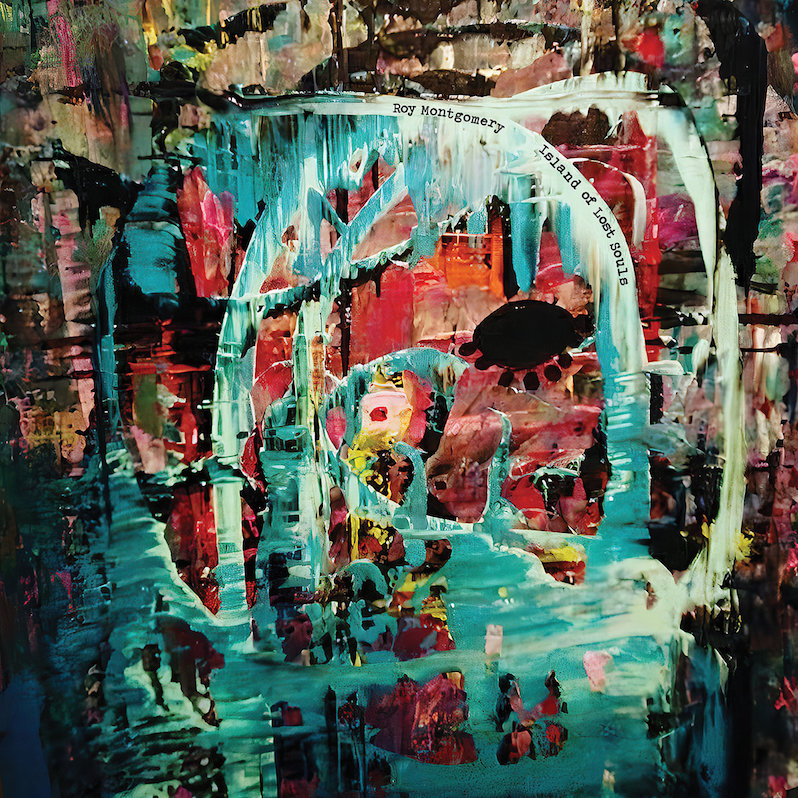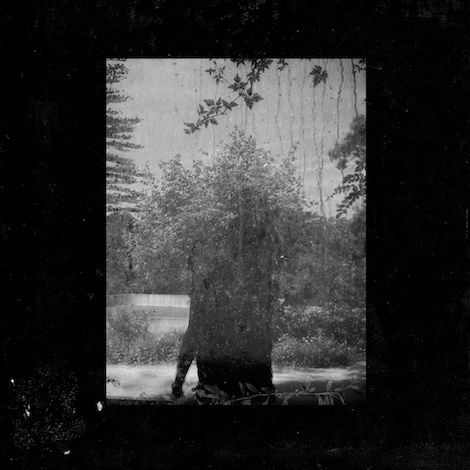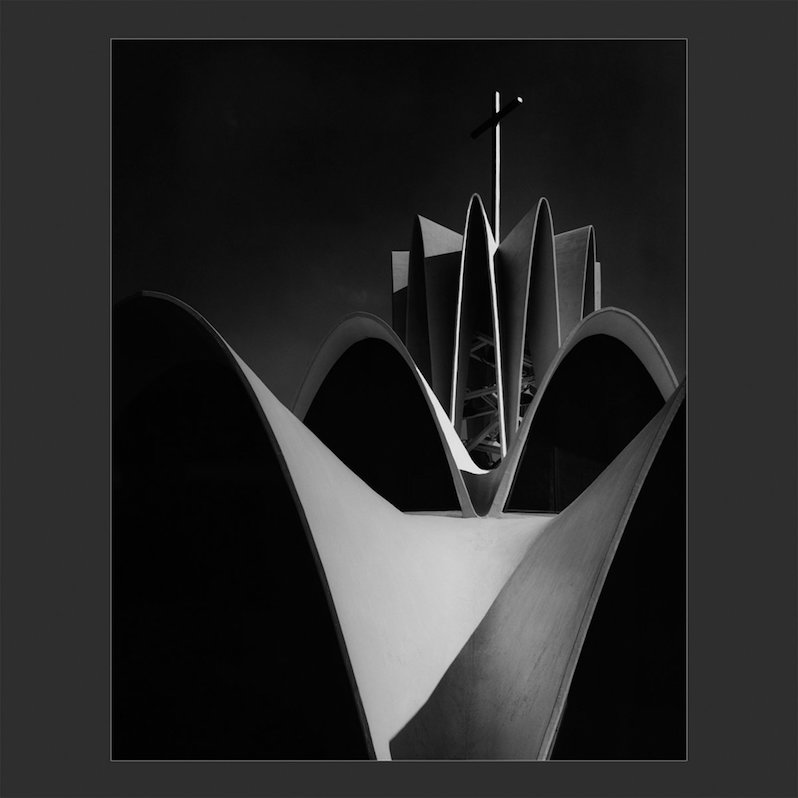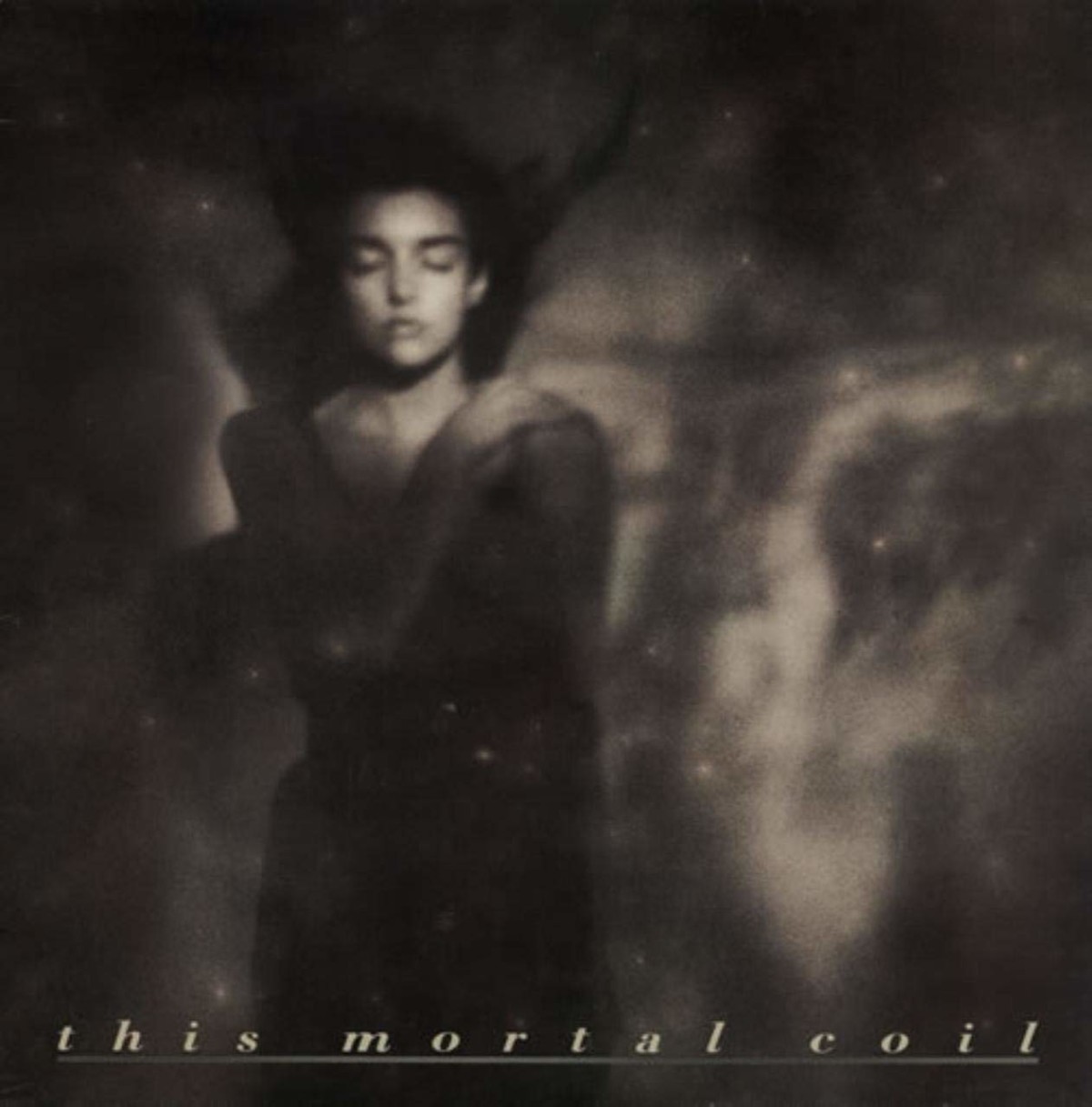Roy Montgomery : Island of Lost Souls

The newest record from Roy Montgomery, a prolific British guitarist with work that straddles the line between psychedelia, drone and post-rock, is a return to his megalithic work. Island of Lost Souls, the first of four planned releases this year, is a record more on the ethereal, gauzy chamber music and ambient end of his creative output, a dappling and cascading sound like sheets of rain or beds of light falling in some gentle childlike apocalypse. These are songs of grief; each of the four tracks is dedicated to a fellow musician or artist that has recently passed that Montgomery admired and, while the pieces bear no obvious relation to the works of those artists, this frees them up to adhere instead to the particular grief and longing memory Montgomery seems to associate with them.
Despite the precipitating darkness this premise seems to suggest, these are gentle and warm pieces of music, seemingly drawing from pools of love and fondness rather than the despair and iciness death contemplation can sometimes bring up. Given the brightness and sweep of the music, one would be excused in thinking perhaps they imply some kind of afterlife, sheets of light-like rays from heaven and guitars like angelic choirs. There are certainly hints of this: Island of Lost Souls is, whether deliberately or not, a gesture to the island of Purgatory from The Divine Comedy, itself a island mountain containing (fittingly) the lost souls destined neither for heaven nor hell, while the final track title references Hildegard von Bingen, a famed composer of medieval choral music for the church. These don’t amount, thankfully, to any kind of ministerial tone, instead fitting with the timbres of the music as a contemplating of the long tail of life those lost have after their passing, when questions of legacy and the impact on those left behind and living testimonies becomes the shape of a life as opposed to their biological body.
There is a Robert Smith-like sense of grandeur-in-grief in the middle two tracks, each of which swirl about in dark pinks and purples like congealing glass, a post-4AD gothic cloudwork of lingering pain. Like Disintegration and the works of This Mortal Coil and Cocteau Twins (as well as Grouper, a contemporary artist Montgomery has collaborated with in the past), these pieces work through cascade and beauty the dense and swarming/suffocating feelings of longing and loss that come from grief. The key emotional element here is that there is still beauty, still sensuousness, grief not being the hollowing and rotting cave as depicted in doom metal or the pervasive self-annihilation of industrial or country music but instead a kind of inversed affirmation of both life and love.
These sheets of ambient new age guitar, a kind of gothic post-rock David Helpling, are constructing a cathedral of love out of loss. It provides a rich intertextual series of fibers, connecting as much to high goth as to ambient, reaching from Pink Floyd to Grouper as much as it does to the worlds of avant-garde soundscapes and installation music. That the final of the four girthy tracks spends 20 minutes rhapsodizing with guitars like church bells, almost like a lost Sonic Youth experiment played with reverb and chorus instead of distortion, returns the record to that completed sense of love and affirmation. These are four reveries, each exploring slightly different moods, but the final assembled shape is one of devotion and gratitude rather than despair.
The full scope of this record to some degree can’t be ascertained until the final three installments of the 2021 cycle are either released or canned. This leaves Island of Lost Souls a critical dangling thread, one that elliptically evades closure, at least at current. But this too feels fitting, given the subject matter of the record and the frustratingly eternal nature of grief and love; these are not wounds that heal but that transform the body, so that you no longer are a body-with-wound but instead become a body-with-aperture, a new whole defined as having gaps and voids. The decision to err away from vocal-oriented material or more traditional songshapes leaves these pieces like ghosts, unanswered and unanswerable questions, a church of wind and red stone in the American midwest hidden in a canyon lit only the rising and setting of the sun.
Label: Ba Da Bing
Year: 2021
Similar Albums:
Langdon Hickman is listening to progressive rock and death metal. He currently resides in Virginia with his partner and their two pets.




